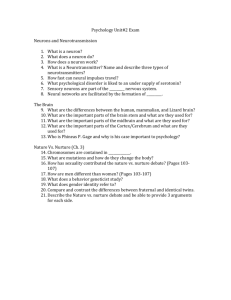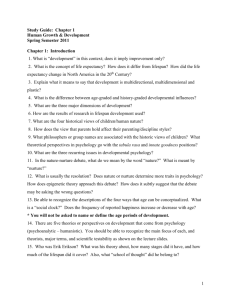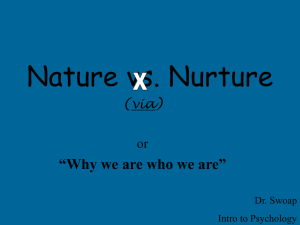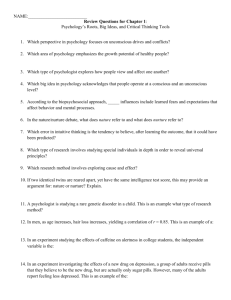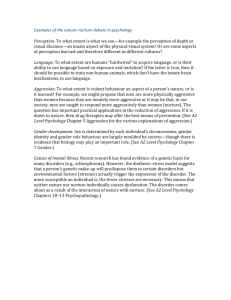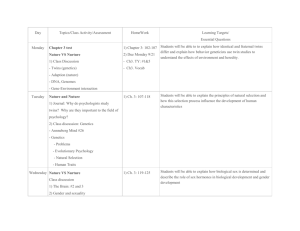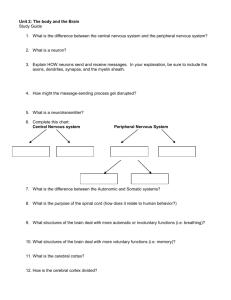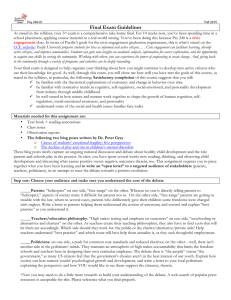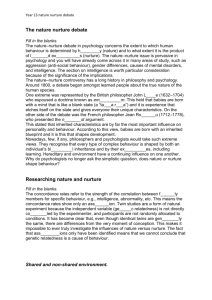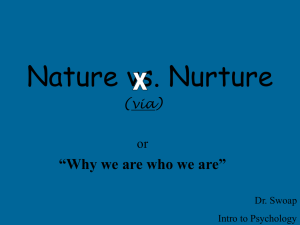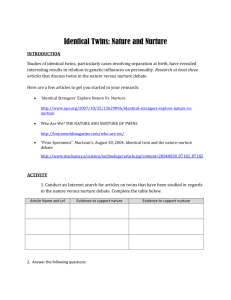Nature vs Nurture Article
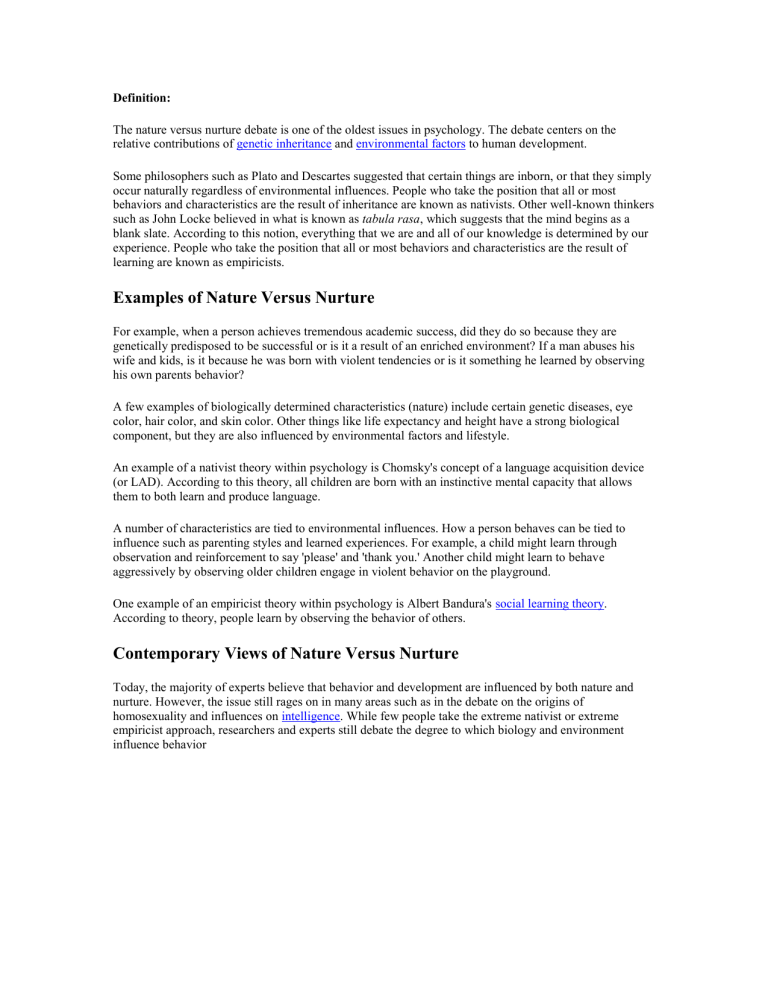
Definition:
The nature versus nurture debate is one of the oldest issues in psychology. The debate centers on the relative contributions of genetic inheritance and environmental factors to human development.
Some philosophers such as Plato and Descartes suggested that certain things are inborn, or that they simply occur naturally regardless of environmental influences. People who take the position that all or most behaviors and characteristics are the result of inheritance are known as nativists. Other well-known thinkers such as John Locke believed in what is known as tabula rasa , which suggests that the mind begins as a blank slate. According to this notion, everything that we are and all of our knowledge is determined by our experience. People who take the position that all or most behaviors and characteristics are the result of learning are known as empiricists.
Examples of Nature Versus Nurture
For example, when a person achieves tremendous academic success, did they do so because they are genetically predisposed to be successful or is it a result of an enriched environment? If a man abuses his wife and kids, is it because he was born with violent tendencies or is it something he learned by observing his own parents behavior?
A few examples of biologically determined characteristics (nature) include certain genetic diseases, eye color, hair color, and skin color. Other things like life expectancy and height have a strong biological component, but they are also influenced by environmental factors and lifestyle.
An example of a nativist theory within psychology is Chomsky's concept of a language acquisition device
(or LAD). According to this theory, all children are born with an instinctive mental capacity that allows them to both learn and produce language.
A number of characteristics are tied to environmental influences. How a person behaves can be tied to influence such as parenting styles and learned experiences. For example, a child might learn through observation and reinforcement to say 'please' and 'thank you.' Another child might learn to behave aggressively by observing older children engage in violent behavior on the playground.
One example of an empiricist theory within psychology is Albert Bandura's social learning theory .
According to theory, people learn by observing the behavior of others.
Contemporary Views of Nature Versus Nurture
Today, the majority of experts believe that behavior and development are influenced by both nature and nurture. However, the issue still rages on in many areas such as in the debate on the origins of homosexuality and influences on intelligence . While few people take the extreme nativist or extreme empiricist approach, researchers and experts still debate the degree to which biology and environment influence behavior
